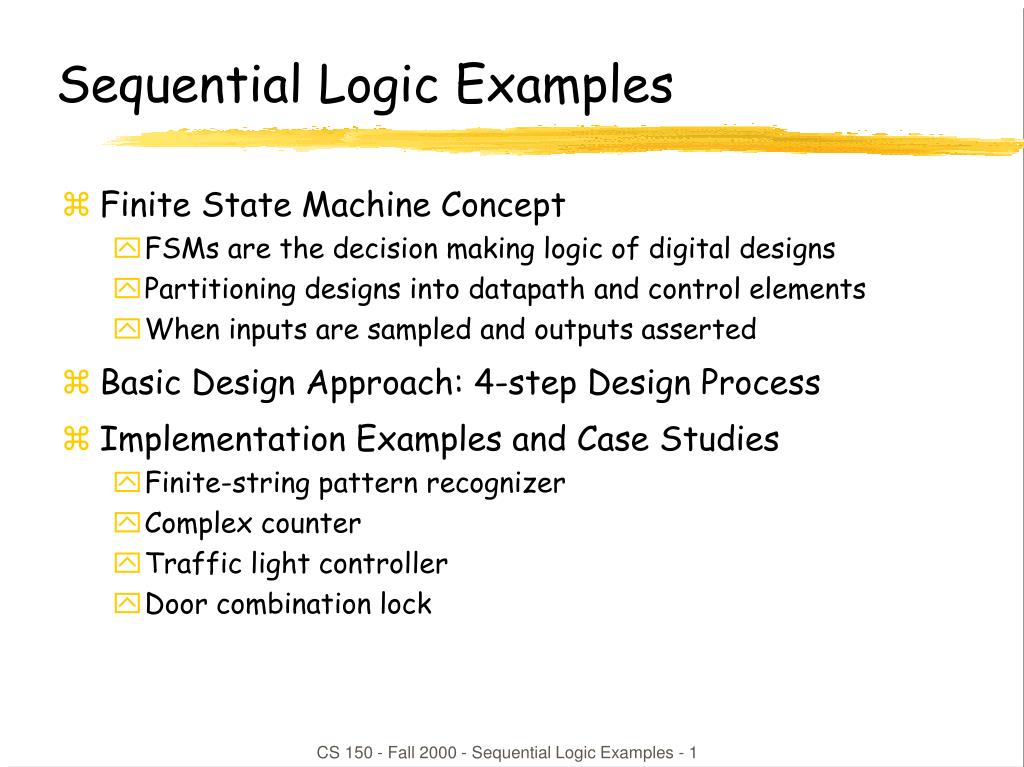

At the heart of these circuits are logic devices called latches and ip-ops that store a single bit of data until the bit is overwritten at a later (often arbitrary) time. There are several applications of sequential circuits. In general, a circuit that maintains a memory of the past is referred to as a sequential logic circuit. Implementation of storage elements leads to various forms of sequential logic. Finally, we present experimental results using these algorithms on sequential circuits. Traffic control systems are another example of sequential circuits in operation in our daily lives.

We discuss the use of more global state machine decomposition and factorization algorithms for area optimization. We present new optimization algorithms that incrementally modify state machine structures across latch boundaries. This can be useful from both an area and performance point of view. We address the problem of migrating logic across state machine boundaries so as to make particular machines less complex at the possible expense of making others more complex. Exploiting these don't care sequences can result in significant improvements in area and performance. This requires that genetic circuits remain in their current state until they receive. We present new techniques for the exploitation of sequential don't cares in arbitrary, interconnected sequential machine structures. Sequential logic circuits were designed to implement checkpoint control. behavior of an asynchronous sequential circuits. However, logic cannot be straightforwardly migrated across latch boundaries when the basic blocks are sequential rather than combinational circuits. This type of logical circuit is also known as clocked sequential circuits.

Techniques to optimize pipelined combinational logic so as to improve area/throughout have been proposed. Behavior of an asynchronous sequential circuit depends. The simplest type is the S-R flip-flop (or latch) whose. In automata theory, sequential logic is a type of logic circuit whose output depends on the present value of its input signals and on the sequence of past. This type of logical circuit is also known as clocked sequential circuits. While optimization techniques for single finite state machines are relatively well developed, the problem of optimization across latch boundaries has received much less attention. Sequential circuits are the other important digital type, used in counting and for memory actions. Interacting finite state machines are common in industrial chip designs. In this paper, we present approaches to multi-level sequential logic synthesis - algorithms and techniques for the area and performance optimization of interconnected finite state machine descriptions. Sequential logic is important for controlling the flow of data through your design as well as improving efficiency by allowing different sections of.


 0 kommentar(er)
0 kommentar(er)
